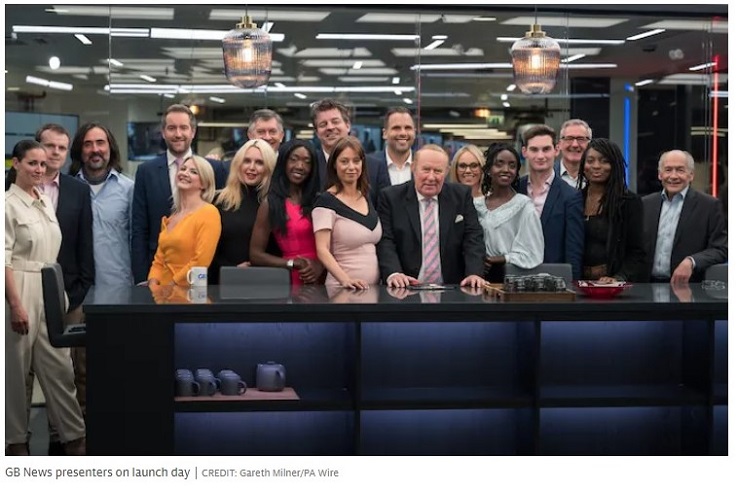From the Sunday Telegraph
The campaign group behind the advertising boycott of GB News has been accused of breaching company laws by engaging in “political activity”
In a letter to Kwasi Kwarteng, the Business Secretary, ten Conservative MPs called for an investigation into Stop Funding Hate, which they said advocates a “cancel culture” by pressuring firms into pulling advertisements from the new broadcaster and several tabloid newspapers.
The group’s website criticises GB News’s “anti-woke direction”.

Stop Funding Hate is registered as a Community Interest Company (CIC), a type of firm intended to “benefit the community”. . . CICs must not be formed “for political purposes” and any political activities “should be closely related to the non-political community benefit activities which they are set up to carry out”.
In the letter to Mr Kwarteng, the Tory backbenchers, led by Brendan Clarke Smith, state: “We are concerned that since 2017 the campaign group Stop Funding Hate has been exploiting the prestige that is afforded by CIC status, and the privileged access that CICs have to many grants of taxpayers money, for overtly political means.”
…the MPs state: “As it continued to whip up a cancel culture, and pressures brands into boycotting news outlets, we believe it is important to reassess whether Stop Funding Hate is the sort of organisation that represents the best of Britain’s charitable sector. . . Whilst it is not clear to us, nor to our constituents … whose interest an attack on media plurality is meant to be serving, what we are certain of is that its current tactics are against the spirit and the letter of CIC legislation surrounding political activity. . . it is proactively advocating against a group in society, namely the hundreds of thousands of people who tune into GB News every day, and the 60 per cent of the population who do not want to see brands engage in cancel culture of boycotts of TV stations.”
Stop Funding Hate describes itself as a “community-driven campaign” whose “supporter community includes people from across UK society, united by a shared commitment to overcoming hatred and challenging all forms of discrimination”. The campaign was launched “amid a surge of anti-migrant and anti-Muslim headlines” and its goal is “to make hate unprofitable”.
There are signs that SFH’s campaign has been counter productive. From the Telegraph last week
Attempts to pressure companies into ditching advertisements on GB News are making many people more likely to watch the channel, according to a poll. A survey of 1,000 people found that 29 per cent were more likely to watch GB News following the boycott, compared to 14 per cent who said they were less likely to tune in.
The findings suggest that the campaign designed to damage the new centre-right broadcaster may backfire. A series of firms, including Nivea, Kopparberg and Ikea, withdrew or suspended advertising campaigns on GB News following pressure by activist groups such as Stop Funding Hate and Led by Donkeys.
Mr Clarke-Smith said: “These findings show the risk businesses are taking when they allow their marketing strategies to be dictated by those engaged in cancel culture. As always, these online mobs create noise, which is given traction by the mainstream media, but the vast majority of normal people out there just want businesses to focus on selling them the right products at the right prices. If Sainsbury’s wants to pander to the mob, enter the political arena and bend to the will of politically motivated campaigns, people will start changing where they shop. I don’t want my supermarket to have political views – I want it to sell me good food at competitive prices.”
- Like
- Digg
- Del
- Tumblr
- VKontakte
- Buffer
- Love This
- Odnoklassniki
- Meneame
- Blogger
- Amazon
- Yahoo Mail
- Gmail
- AOL
- Newsvine
- HackerNews
- Evernote
- MySpace
- Mail.ru
- Viadeo
- Line
- Comments
- Yummly
- SMS
- Viber
- Telegram
- Subscribe
- Skype
- Facebook Messenger
- Kakao
- LiveJournal
- Yammer
- Edgar
- Fintel
- Mix
- Instapaper
- Copy Link









